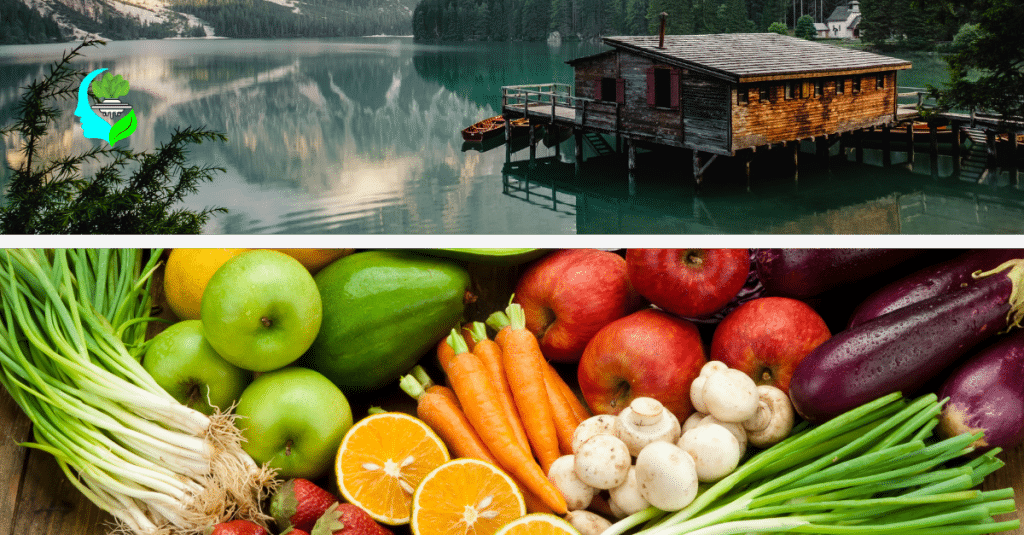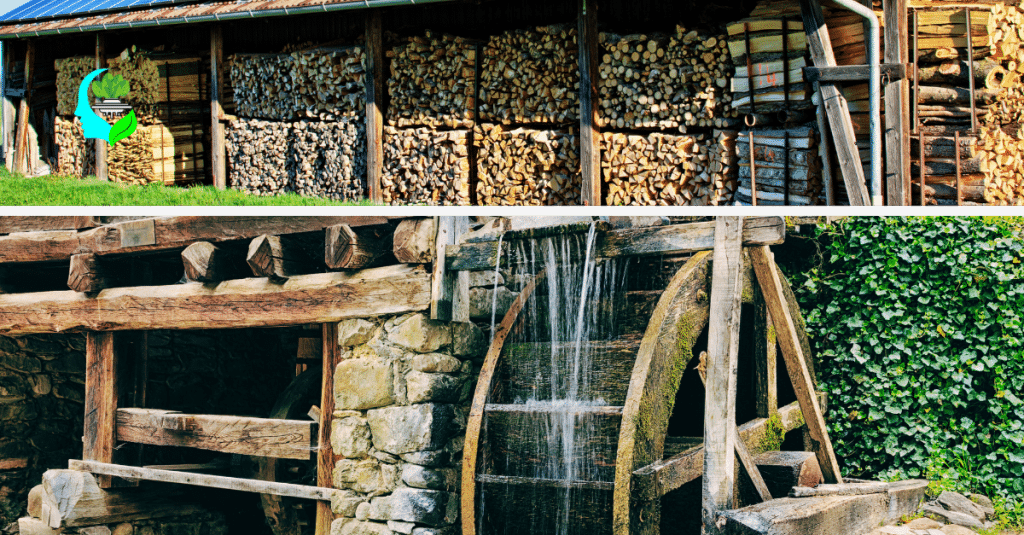Learn to build a sustainable, self-sufficient lifestyle with UpRooted Greens' 200+ hour curriculum—covering everything from food production to renewable energy. Their integrated five-pillar system works for any space, using closed-loop methods and AI tools to maximize efficiency.
UpRooted Greens: Forging a Living Eco‑System for Sustainable Self‑Sufficiency

Key Takeaways
- UpRooted Greens offers a comprehensive 200+ hour curriculum covering all aspects of self-sufficiency including food production, water management, renewable energy, and income generation.
- The program is built on five foundational pillars that work together as an integrated ecosystem rather than isolated skills.
- You don't need extensive land or prior experience to achieve self-sufficiency - the curriculum scales from urban apartments to rural homesteads.
- Closed-loop systems taught in the program enable sustainable living by creating cycles where waste becomes resource.
- UpRooted Greens provides AI-powered tools that help automate and optimize homestead management for greater efficiency.
The Five Pillars of Self-Sufficiency: How UpRooted Greens Creates a Living Ecosystem
In a world of fragile food supply chains and unstable energy grids, true independence means mastering multiple interconnected systems. UpRooted Greens has developed a practical approach to sustainable living through their comprehensive curriculum structured around five essential pillars that form a complete living ecosystem for genuine self-reliance.
Unlike isolated survival skills or fragmented gardening courses, UpRooted Greens' system treats your homestead as a single, integrated organism. Each pillar—food production, water management, energy independence, waste cycling, and income generation—supports and enhances the others, creating a resilient framework that adapts to your specific circumstances.
The brilliance of this approach is its scalability. Whether you're working with an apartment balcony or 40 acres in the countryside, the same principles apply. The curriculum's 200+ courses and 200+ hours of training are designed to meet you exactly where you are, providing concrete steps to increase your independence regardless of your starting point.
Regenerative Permaculture: The Foundation of Sustainable Living
At the heart of the UpRooted Greens methodology lies regenerative permaculture—a system that goes beyond merely sustaining resources to actively rebuilding and enhancing them. This approach forms the bedrock upon which all five pillars rest.
While conventional agriculture depletes soil and requires constant chemical inputs, regenerative systems build fertility over time. The curriculum teaches specific techniques like creating hügelkultur beds, implementing closed-loop composting systems, and designing plant guilds that work together to improve soil health while producing abundant harvests.
For example, you'll learn how to transform even dead, lifeless dirt into rich, living soil through techniques like vermiculture (raising worms for castings), black soldier fly composting (converting food waste into protein-rich animal feed), and strategic cover cropping. These aren't just theoretical concepts—the program provides step-by-step implementation guides with specific measurements, timing, and materials lists.
What truly sets this approach apart is its focus on creating abundance rather than merely preventing scarcity. By understanding and working with natural cycles, you can establish systems that grow more productive year after year with decreasing rather than increasing inputs—the definition of true sustainability.
Complete Food Independence: Growing Systems for Any Space
Food independence stands as the cornerstone of self-sufficiency, yet many believe it's impossible without acres of land. UpRooted Greens dispels this myth by providing proven food production systems that work anywhere—from studio apartments to suburban lots.
1. Container Gardening for Urban Dwellers
Urban dwellers can achieve remarkable food production even without traditional garden space. The UpRooted Greens curriculum details specific container strategies that go far beyond growing a few herbs on a windowsill.
You'll learn exact soil mixture ratios for container environments (like the 5-1-1 mix of pine bark, peat moss, and perlite that provides optimal drainage while retaining nutrients), specialized deep-root containers for root crops like carrots and potatoes, and self-watering system construction that reduces daily maintenance while improving plant health.
The program emphasizes production efficiency through techniques like square-foot gardening adapted for containers, which can yield up to 16 plants in a single 1' x 1' container. You'll discover which high-calorie crops thrive in containers—like determinate tomatoes that can produce 10-15 pounds of fruit in a 5-gallon bucket, or vertical-trained squash that can yield 8-12 pounds per plant even when container-grown.
2. Food Forests and Vertical Systems for Maximum Yield
When more space is available, the curriculum shifts to integrated food forest design. Unlike traditional gardens that require constant replanting, food forests create self-maintaining ecosystems that produce food from multiple layers.
The program provides climate-specific plant guild templates—pre-designed plant communities where each member serves multiple functions. For example, you'll learn how to combine an apple tree (canopy) with currant bushes (shrub layer), comfrey (herbaceous layer), strawberries (ground cover), and nitrogen-fixing clovers (soil layer) to create a productive system where each plant supports the others.
Vertical growing innovations feature prominently in the curriculum, with detailed plans for systems like A-frame hydroponics that can grow 72 lettuce plants in 4 square feet, wall-mounted gutter systems for strawberries and herbs, and space-efficient NFT (Nutrient Film Technique) vertical hydroponics that can produce 200+ pounds of greens annually in just a corner of a room.
3. Raising Livestock for Complete Protein Cycles
Protein production typically requires substantial space—but not with UpRooted Greens' innovative micro-livestock systems. The curriculum includes complete guides for space-efficient protein sources that integrate perfectly with plant production.
You'll master quail husbandry systems where just 4 square feet of space can house 8 birds producing 2,000+ eggs annually—a complete protein source that requires minimal input. The program covers every aspect from incubation temperatures (99.5°F precisely) to feed formulations that can be grown in your own systems.
For those with slightly more space, the curriculum details rabbit raising in hutch systems where three does and one buck can produce 180+ pounds of meat annually in a system smaller than a standard closet. You'll learn colony raising methods, optimal cage dimensions (30"x36" minimum for comfort), breeding schedules, and integration with garden systems where rabbit manure becomes a valuable nitrogen source.
For those with even more space, the curriculum covers a full range of livestock choices. You choose the livestock that fits your time, budget, space and needs.
Water and Energy Independence
Without reliable water and energy, even the best food production systems will fail. UpRooted Greens provides comprehensive coverage of off-grid utilities that function independently while integrating with your food systems.
Rainwater Harvesting and Filtration Systems
Water self-sufficiency begins with capturing the resource that falls freely from the sky. The curriculum teaches precise calculation methods—like the formula 0.62 × roof square footage × inches of rainfall = gallons collected—enabling you to design appropriately sized systems for your climate and needs.
You'll learn to construct first-flush diverters that remove contaminants from the initial roof runoff, build multilayer filtration systems using readily available materials, and design gravity-fed distribution systems that require no electricity. The program includes detailed plans for both simple setups (like 55-gallon drum systems with spigots) and complex configurations (like interconnected cistern arrays with 5,000+ gallon capacity).
The filtration component is particularly valuable, covering both particle filtration (using sand, gravel and ceramic) and biological purification methods that make rainwater potable according to EPA standards. You'll receive step-by-step guidance for building biosand filters that remove 99.9% of pathogens using materials costing less than $100.
Off-Grid Solar, Water, Wind and Hybrid Power Solutions
Energy independence forms another crucial pillar of self-sufficiency. Rather than vague theory, UpRooted Greens provides actionable technical guidance for designing and implementing renewable energy systems tailored to your specific situation.
The curriculum walks you through power load calculations, teaching you to measure actual consumption rather than relying on estimates. You'll learn to size systems appropriately using formulas like daily kWh × 1.3 (system inefficiency factor) ÷ local sun hours = minimum solar array size in kW.
Component selection becomes simple with detailed comparisons between monocrystalline, polycrystalline, and thin-film panels; PWM vs. MPPT charge controllers; and various battery technologies from lead-acid to lithium iron phosphate. The program even covers advanced topics like charge controller programming for optimal battery life and hybrid system integration.
Greywater Reuse and Zero-Waste Infrastructure
Completing the water cycle, UpRooted Greens teaches comprehensive greywater reuse systems that transform "waste" water into a resource. You'll learn to design branched drain systems that distribute shower and sink water to landscape plants, construct simple sand-filter systems that make greywater safe for broader irrigation, and implement mulch basin designs that maximize water infiltration while eliminating odors.
The curriculum covers compatible plant selections specifically suited for greywater irrigation zones, teaching you which plants thrive with the slightly alkaline, soap-containing water typical of greywater systems. You'll even learn to design entire landscapes around your water flows, creating productive "banana circles" and other specialized plantings that maximize the benefit from each drop.
Closed-Loop Systems: Creating Your Micro-Arcology
The exceptional power of the UpRooted Greens methodology emerges when individual components integrate into closed-loop systems—creating what the curriculum calls a micro-arcology. This self-contained ecosystem mimics nature's perfect efficiency where nothing is wasted and everything serves multiple functions.
Companion Planting and Soil Biology
Healthy, living soil forms the foundation of all sustainable systems. Unlike conventional approaches that treat soil as merely a medium to hold plants upright, UpRooted Greens teaches you to nurture the complex soil food web—the intricate community of organisms that support plant health naturally.
The curriculum details specific companion planting combinations with measured spacing requirements, like the classic Three Sisters guild where corn provides structure (planted 12" apart in blocks), beans fix nitrogen (3-4 beans planted 3" from each cornstalk), and squash suppresses weeds with broad leaves (planted at the corners of each corn block). You'll learn dozens of such proven plant combinations with precise implementation guidance.
The soil biology modules go far beyond basic composting, teaching you to cultivate specific beneficial organisms. You'll learn to brew actively aerated compost teas using precise ratios (5 gallons water, 1 cup finished compost, 1 tablespoon unsulfured molasses) and equipment setups that multiply beneficial microbes by billions in just 24-48 hours. The curriculum includes microscope analysis techniques to verify your microbial populations and troubleshoot imbalances.
These approaches create self-regulating growing environments where plants naturally resist pests and disease through enhanced immune function, reducing or eliminating the need for interventions of any kind.
Vermiculture and Black Soldier Fly Composting
Waste conversion represents a critical function in any closed-loop system. UpRooted Greens teaches advanced biological processing systems that transform "waste" into valuable resources.
The vermiculture modules cover complete worm bin design with specific dimensions (typically 24"×36"×12" for a family of four), bedding materials (coconut coir mixed with 10% finished compost for microbial inoculation), optimal moisture levels (70-80%, like a wrung-out sponge), and feeding protocols (bury food in a different section each week to facilitate harvesting).
You'll learn to maintain ideal population density (1 lb worms per square foot of surface area), identify and correct common problems, and harvest both castings and excess worms on regular cycles. The curriculum even covers breeding techniques to generate worm protein for livestock feed—creating another closed loop in your system.
Black soldier fly composting takes waste processing to another level. The program teaches you to construct specialized digesters with precise dimensions and features that encourage egg-laying and self-harvesting of mature larvae. You'll learn the optimal operating temperature range (75-95°F), feeding rates (up to 15 lbs of food waste per square foot weekly), and harvesting techniques that produce protein-rich larvae containing 35-45% protein by dry weight—a premium feed for chickens, fish, or other livestock.

Automating Your Homestead with AI-Assisted Tools
Modern self-sufficiency uses appropriate technology to reduce labor while increasing system reliability. UpRooted Greens includes both simple mechanical systems and sophisticated AI-powered tools.
The curriculum teaches you to build gravity-fed irrigation systems with timers and moisture sensors that deliver precise amounts of water exactly when plants need it. You'll learn to construct automatic chicken door openers timed to sunrise/sunset, automated feeding systems triggered by weight sensors, and greenhouse ventilation controls responsive to temperature and humidity parameters.
What truly distinguishes UpRooted Greens is their integration of AI tools specifically developed for homestead management. Their proprietary software suite includes planning algorithms that optimize garden layouts based on companion planting data, predictive harvest calculators that help schedule succession planting, and image-recognition systems that can identify plant diseases from smartphone photos with 94% accuracy.
These tools transform overwhelming complexity into manageable systems that largely run themselves, freeing you to focus on expansion, improvement, and enjoyment rather than daily maintenance.
From Self-Sufficiency to Prosperity: Monetizing Your Homestead
Self-sufficiency creates freedom, but prosperity requires turning your production into income. UpRooted Greens provides comprehensive guidance for transforming homestead activities into multiple revenue streams.
The value-added processing modules teach specific techniques for creating premium products from raw harvests. You'll learn to make fermented vegetables with 12-18 month shelf life without refrigeration, craft herbal products with therapeutic properties, and produce specialty items like infused vinegars and oils that command 300-400% markups over ingredient costs.
The curriculum includes detailed processing protocols, food safety requirements, packaging options with comparative cost analyses, and pricing strategies based on market research. You'll receive templates for product labels, marketing materials, and even e-commerce setup guides for direct sales.
Digital knowledge sharing provides another powerful income stream. The program teaches content creation strategies across platforms, including optimized video production techniques, effective teaching methodologies, and audience building. Students learn to create online courses, membership sites, and digital products that generate passive income from their accumulated knowledge.
Local service modules cover establishing CSA programs with specific subscription models and pricing structures, organizing educational workshops with tested curricula, and hosting on-farm experiences that create premium income opportunities while building community connections.
Your Freedom Blueprint: From Learning to Living Off-Grid
The journey to self-sufficiency isn't about overnight transformation—it's about strategic implementation of systems that gradually reduce dependency on fragile external infrastructure. UpRooted Greens provides a structured pathway customized to your specific situation.
The program begins with a comprehensive assessment of your current resources, constraints, and goals. From there, it helps you develop a personalized implementation timeline with specific milestones. The curriculum adapts whether you're starting with windowsill herbs in an apartment or developing existing acreage.
What distinguishes this approach is its focus on strategic sequencing—implementing systems in an order that builds momentum and minimizes capital outlay. The program identifies "keystone projects" that unlock multiple benefits simultaneously, allowing you to achieve visible progress while building toward comprehensive self-sufficiency.
The curriculum also addresses the often-overlooked social and emotional aspects of this lifestyle change. You'll join a community of like-minded individuals following similar paths, with structured interaction opportunities including regional meetups, skill-sharing exchanges, and collaborative projects. This community aspect transforms what could be an isolating journey into a collective movement toward resilience.
UpRooted Greens delivers not just information but transformation—a comprehensive framework for creating a life of abundance, resilience, and freedom regardless of external circumstances.
For those ready to master self-sufficiency across food, water, energy and income production, UpRooted Greens offers the most comprehensive ecosystem-based training available at https://www.uprootedgreens.com.
